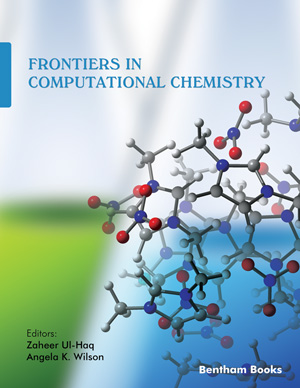Abstract
The neuropeptide substance P (SP) shows a widespread distribution in both the central and peripheral nervous systems and it is known that after binding to the neurokinin-1 (NK-1) receptors, SP regulates many biological functions in the central nervous system such as emotional behaviour, stress, depression, anxiety, emesis, migraine, alcohol addiction and neurodegeneration. SP has been also implicated in pain, inflammation, hepatotoxicity and in virus proliferation, and it plays an important role in cancer (e.g., tumour cell proliferation, angiogenesis, and the migration of tumour cells for invasion and metastasis). By contrast, it is known that after binding to NK-1 receptors, NK-1 receptor antagonists specifically inhibit the above-mentioned biological functions mediated by SP. Thus, these antagonists exert an anxyolitic, antidepressant, antiemetic, antimigraine, antialcohol addiction or neuroprotector effect in the central nervous system, and they play a role in analgesic, antiinflammatory, hepatoprotector processes and in antivirus proliferation. Regarding cancer, NK-1 receptor antagonists exert an antitumour action (inducing tumour cell death by apoptosis), and induce antiangiogenesis and inhibit the migration of tumour cells. It is also known that NK-1 receptors have a widespread distribution and that they are overexpressed in tumour cells. Thus, NK-1 receptor antagonists are molecularly targeted agents. In general, current drugs have a single therapeutic effect, although less commonly they may exert several. However, the data reported above indicate that NK-1 receptor antagonists are promising drugs, exerting many therapeutic effects (the action of such antagonists is dose-dependent and, depending on the concentration, has more positive effects). In this review, we update the multiple therapeutic effects exerted by NK-1 receptor antagonists.
Keywords: Substance P, anxyolitic, antidepressant, analgesic, antivirus proliferation, antialcohol addiction, antiinflammatory, antitumour, NK-1 Receptor Antagonists, neuropeptide
Current Medicinal Chemistry
Title: NK-1 Receptor Antagonists: A New Paradigm in Pharmacological Therapy
Volume: 18 Issue: 12
Author(s): M. Munoz and R. Covenas
Affiliation:
Keywords: Substance P, anxyolitic, antidepressant, analgesic, antivirus proliferation, antialcohol addiction, antiinflammatory, antitumour, NK-1 Receptor Antagonists, neuropeptide
Abstract: The neuropeptide substance P (SP) shows a widespread distribution in both the central and peripheral nervous systems and it is known that after binding to the neurokinin-1 (NK-1) receptors, SP regulates many biological functions in the central nervous system such as emotional behaviour, stress, depression, anxiety, emesis, migraine, alcohol addiction and neurodegeneration. SP has been also implicated in pain, inflammation, hepatotoxicity and in virus proliferation, and it plays an important role in cancer (e.g., tumour cell proliferation, angiogenesis, and the migration of tumour cells for invasion and metastasis). By contrast, it is known that after binding to NK-1 receptors, NK-1 receptor antagonists specifically inhibit the above-mentioned biological functions mediated by SP. Thus, these antagonists exert an anxyolitic, antidepressant, antiemetic, antimigraine, antialcohol addiction or neuroprotector effect in the central nervous system, and they play a role in analgesic, antiinflammatory, hepatoprotector processes and in antivirus proliferation. Regarding cancer, NK-1 receptor antagonists exert an antitumour action (inducing tumour cell death by apoptosis), and induce antiangiogenesis and inhibit the migration of tumour cells. It is also known that NK-1 receptors have a widespread distribution and that they are overexpressed in tumour cells. Thus, NK-1 receptor antagonists are molecularly targeted agents. In general, current drugs have a single therapeutic effect, although less commonly they may exert several. However, the data reported above indicate that NK-1 receptor antagonists are promising drugs, exerting many therapeutic effects (the action of such antagonists is dose-dependent and, depending on the concentration, has more positive effects). In this review, we update the multiple therapeutic effects exerted by NK-1 receptor antagonists.
Export Options
About this article
Cite this article as:
Munoz M. and Covenas R., NK-1 Receptor Antagonists: A New Paradigm in Pharmacological Therapy, Current Medicinal Chemistry 2011; 18 (12) . https://dx.doi.org/10.2174/092986711795496746
| DOI https://dx.doi.org/10.2174/092986711795496746 |
Print ISSN 0929-8673 |
| Publisher Name Bentham Science Publisher |
Online ISSN 1875-533X |
Call for Papers in Thematic Issues
Advances in Medicinal Chemistry: From Cancer to Chronic Diseases.
The broad spectrum of the issue will provide a comprehensive overview of emerging trends, novel therapeutic interventions, and translational insights that impact modern medicine. The primary focus will be diseases of global concern, including cancer, chronic pain, metabolic disorders, and autoimmune conditions, providing a broad overview of the advancements in ...read more
Cellular and Molecular Mechanisms of Non-Infectious Inflammatory Diseases: Focus on Clinical Implications
The Special Issue covers the results of the studies on cellular and molecular mechanisms of non-infectious inflammatory diseases, in particular, autoimmune rheumatic diseases, atherosclerotic cardiovascular disease and other age-related disorders such as type II diabetes, cancer, neurodegenerative disorders, etc. Review and research articles as well as methodology papers that summarize ...read more
Chalcogen-modified nucleic acid analogues
Chalcogen-modified nucleosides, nucleotides and oligonucleotides have been of great interest to scientific research for many years. The replacement of oxygen in the nucleobase, sugar or phosphate backbone by chalcogen atoms (sulfur, selenium, tellurium) gives these biomolecules unique properties resulting from their altered physical and chemical properties. The continuing interest in ...read more
Current advances in inherited cardiomyopathy
Describe in detail all novel advances in multimodality imaging related to inherited cardiomyopathy diagnosis and prognosis. Shed light to deeper phenotypic characterization. Acknowledge recent advances in genetics, genomics and precision medicineread more
 47
47
- Author Guidelines
- Graphical Abstracts
- Fabricating and Stating False Information
- Research Misconduct
- Post Publication Discussions and Corrections
- Publishing Ethics and Rectitude
- Increase Visibility of Your Article
- Archiving Policies
- Peer Review Workflow
- Order Your Article Before Print
- Promote Your Article
- Manuscript Transfer Facility
- Editorial Policies
- Allegations from Whistleblowers
- Announcements
Related Articles
-
Cardiac Amyloidosis Responding to Bortezomib: Case Report and Review of Literature
Current Cardiology Reviews Multimodality Imaging in Cardiac Sarcoidosis: Is There a Winner?
Current Cardiology Reviews Giant Pulmonary Artery Aneurysm Secondary To Patent Ductus Arteriosus: A Case Report
Current Cardiology Reviews Low Dose Chest Computed Tomography, in Identifying Pulmonary Complications in Immunocompromised Patients After Allogeneic Hematopoietic Stem Cell Transplantation
Current Respiratory Medicine Reviews Halving Your Cake and Eating it, Too: A Case-based Discussion and Review of Metabolic Rehabilitation for Obese Adults with Diabetes
Current Diabetes Reviews Protective Effects of Curcumin against Iron-induced Toxicity
Current Pharmaceutical Biotechnology The Fetal Cardiac Function
Current Cardiology Reviews Complications of the Chest Wall and the Respiratory System After Surgery and Functional Performance
Current Respiratory Medicine Reviews Perinatal and Neonatal Outcomes of Lithium-Treated and Untreated Bipolar Women During Pregnancy: A Review of Present Literature
Current Psychopharmacology Neonatal Hypertension: An Underdiagnosed Condition, A Review Article
Current Hypertension Reviews Anabolic Androgenic Steroid (AAS) Related Deaths: Autoptic, Histopathological and Toxicological Findings
Current Neuropharmacology Myocardial Inflammation in Autoimmune Diseases: Investigation by Cardiovascular Magnetic Resonance and Endomyocardial Biopsy
Inflammation & Allergy - Drug Targets (Discontinued) Perinatal Heart Programming: Long-term Consequences
Current Medicinal Chemistry Characterization of Single Nucleotide Polymorphisms of Cytochrome P450 in an Australian Deceased Sample
Current Drug Metabolism Natural Alpha-Glucosidase Inhibitors: Therapeutic Implication and Structure- Activity Relation Ship
Letters in Drug Design & Discovery Kawasakis Disease, Acrodynia, and Mercury
Current Medicinal Chemistry Critical Congenital Heart Disease in Neonates: A Review Article
Current Pediatric Reviews Perioperative Considerations in Patients with Obstructive Sleep Apnea
Current Respiratory Medicine Reviews The Failing Heart in Pediatric Dilated Cardiomyopathy Caused by Excessive Water Drinking: A Case Report and Brief Review
New Emirates Medical Journal Novel Strategies for the Detection of Systolic and Diastolic Heart Failure
Current Cardiology Reviews























